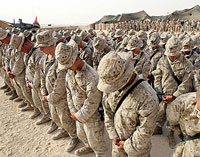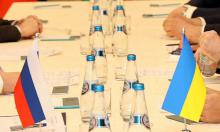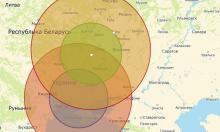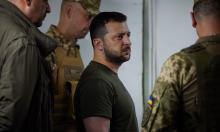New US leaders to withdraw troops from Iraq to improve security at home
The US would unlikely be able to respond adequately to a big terrorist attack or national catastrophe because the wars in Iraq and Afghanistan have drained military resources, according to a congressional commission.

The panel says there are "appalling gaps" in homeland defense readiness and the forces allotted to deal with an emergency, lack training, equipment and funding.
Pravda.Ru has interviewed two American military experts Andrew J. Grotto and P.J. Crowley to find out the western point of view on the subject. Andrew J. Grotto is Senior National Security Analyst at the Center for American Progress. P.J. Crowley is Senior Fellow and Director of Homeland Security at the Center for American Progress.
Pravda.Ru: How could you comment on this?
Andrew Grotto: There are plenty of gaps in preparedness, many of them attributable to a lack of National Guard personnel and equipment owing to the wars in Afghanistan and Iraq. But having the right physical assets available is one thing; having the right leadership in place is another. After Hurricane Katrina devastated the Gulf Coast, the Bush administration failed to lead an effective, credible emergency response. The city of New Orleans and other communities are the casualty of this failed leadership. Getting homeland security back on track really depends first and foremost on leadership.
P.J. Crowley: The wars in Iraq and Afghanistan cost roughly $15 billion per month according to recent reports. There is an "opportunity cost" associated with these operations. The over-emphasis on military intervention -- offense as President Bush describes it -- necessarily means there are fewer resources available to improve homeland security. Many improvements have been made since 9/11, but the final report of the National Commission on the National Guard and Reserves did suggest that more resources need to be devoted to resetting forces that are vital to the ability of the U.S. to respond to a major event, whether caused by a natural disaster or a terrorist attack.
Pravda.Ru: What are the possible ways to solve this problem?
P.J. Crowley: First, it requires a shift in strategy. It is time for the U.S. to recognize the limits of military intervention to solve the global challenge of terrorism. The military is part of the solution, but not the primary one. Terrorism is a political weapon and requires political solutions in places like Iraq, Afghanistan, Pakistan and Iran. Military forces will still be required to help the host governments in Afghanistan and Iraq stabilize their countries and build effective militaries, but the next president will need to shift gears, reduce the number of forces particularly in Iraq and rebuild international support for political solutions. As troops are withdrawn from Iraq, this will free up some resources that can help improve preparedness and security at home.
Andrew Grotto: The next administration will have to fill leadership and physical asset gaps. The American people must have faith in their leaders' ability to respond to disasters; if they do not, even the best laid plans may run into public opposition, as people reject the government's instructions and take matters into their own hands. As far as physical assets go, replacing the equipment that's been damaged or destroyed in Iraq and Afghanistan alone will cost tens of billions of dollars. And there are other shortcomings that have nothing to do with these wars, such as having adequate medical equipment and personnel in a time of domestic crisis. (This is called "surge" capacity, not to be confused with the so-called "surge" in Iraq.) These too must be addressed as part of a comprehensive homeland security strategy.
Pravda.Ru: Do you think that this report will prevent the USA from taking military actions against Iran?
P.J. Crowley: This report has nothing to do with Iran. The recent National Intelligence Estimate was clear in its assessment that there is more time to reach a political solution with Iran. Within the next year or so, there will be elections in both the United States and Iran. Perhaps new governments on both sides will find ways to break the political stalemate that has existed between the two countries for almost 30 years.
Andrew Grotto: This report will have no impact on whether or not the United States takes military action against Iran. The December 2007 National Intelligence Estimate on Iran, which said in essence that Iran's goal appears to be acquisition of the capacity to make nuclear weapons at a future time of its choosing (as opposed to imminently), has laid those arguments to rest--at least for now.
Prepared by Alexander Timoshik
Pravda.Ru
Subscribe to Pravda.Ru Telegram channel, Facebook, RSS!



